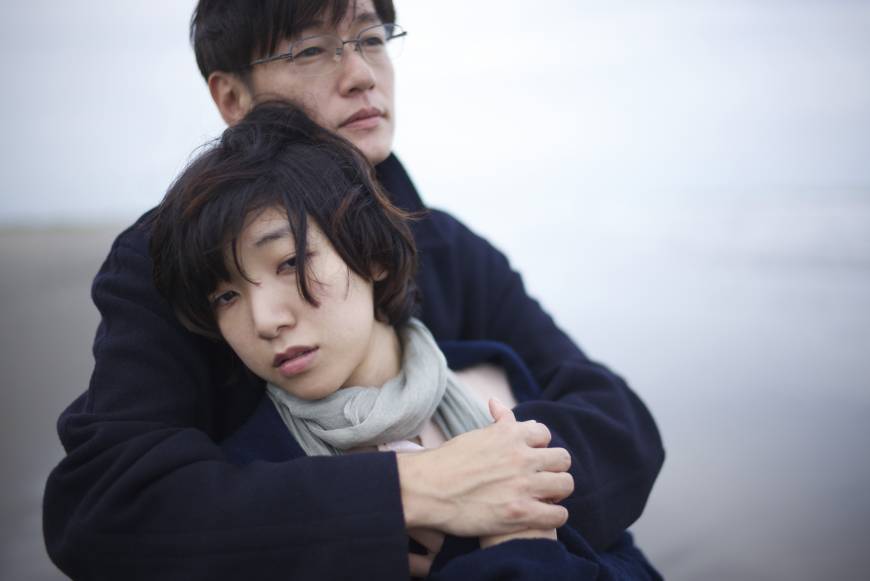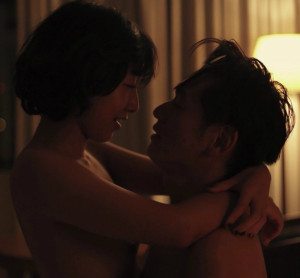Asleep
Director: Shingo Wakagi
Cast: Sakura Andô, Arata Iura, Guama
Country: Japan
Running time: 1h 31m
Tarako (Sakura Ando) just can’t seem to get out of bed long enough to do anything meaningful with her life. Living with depression, she seems most comfortable either sleeping or having sex with her lover Iwanaga (Arata Iura). Her best friend Shiori (Mitsuki Tanimura) has just committed suicide, after working in a particularly Japanese kind of job, sleeping with (but not having sex with) people who need the comfort of a warm body next to them. In addition to suffering from grief, she feels guilt over her relationship with her boyfriend, whose wife is currently in a coma. Feeling the world bear down upon her, the bed with its silken white sheets represents a temporary nirvana from her unhappy life.
Adapted from the eponymous novel from Japanese author Banana Yoshimoto (Kitchen) Asleep, is an evocative piece of slow cinema, its long takes inviting contemplation and participation from the viewer. If you do not concentrate, then you may miss the subtext on offer, and you may be bored, but if you pay attention then there is much reward to be had. This kind of film rests its entire success upon a good subject to linger upon, and Sakura Ando more than excels as a woman slowly learning how to enjoy life again after a tragedy. She is easily capable of embodying complex emotions, her captivating face easily holding the interest of the camera.
This kind of film rests its entire success upon a good subject to linger upon
What draws her to Iwanaga, and what keeps them together? I’d argue that they are drawn together by a shared sense of suffering, and the hope that as a couple they can find solace. When she sleeps with him, she dreams of Shiroi, drawing a strange parallel between both sexual and fraternal love. The editor does well to move in a dreamlike fashion between present and past, to suggest that Tarako is working through her emotions by revisiting her friend, and learning from her what she couldn’t when she was still alive.
This is a common theme in Yoshimoto’s work, who is a specialist in female friendship, always stressing that even when someone is gone you still have much to gain from the time spent with them. Additionally, the cinematography makes excellent use of light to suggest contrasting and converging moods, shooting in pale greens and deep oranges to suggest more than is stated outright by the characters.
Japanese drama is particularly adept at creating strong emotions within the viewer without ever having to force the point. Asleep’s strengths lie as much as in what it holds back on as what it chooses it leave in. For a movie about living with absence – a vegetative wife, or a dead friend – the understated style is suited to its themes. It uses an autumnal colour palette and contains no music until the very end. In the hands of another director this may come across as austere, but this is offset in the film by the tender relationship between Tarako and Iwanaga.
This is not a film with big dramatic moments or strong declarations of love – in fact the most compelling scene may be when the two of them go for dinner. This is a film mostly about looking in, about being withdrawn and insular, dramatising one women’s struggle to overcome her depression and lethargy to be happy and active again.
The crucial turning point in the narrative, employing elements of the surreal, doesn’t quite work, yet the conclusion (which may seem like weak tea to some) feels just about right for her.



Comments